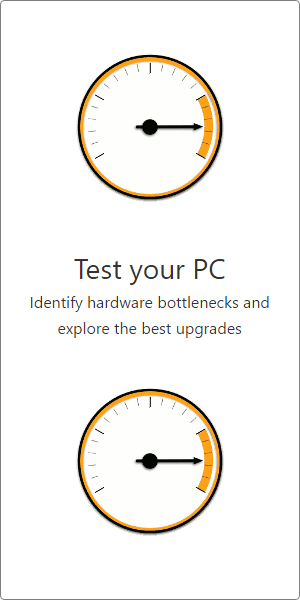Effective Speed
+1,013%
Poor: 47%
Great: 77%
SPEED RANK: 738th / 1080
Poor: 415%
Great: 994%
SPEED RANK: 3rd / 1080
| Effective Speed
Effective SSD Speed |
66 % | 735 % | Insanely faster effective speed. |
Average Score
+1,858%
Peak Score
+2,183%
Value & Sentiment
+1,230%
Nice To Haves
+852%
Specifications
| Capacity
Capacity |
120GB | 4TB |
Conclusion
Average Bench 66%
Average Bench 735%
User Builds
15,430
744
Systems with these SSDs
Top Builds that include these SSDs

 SSD
SSD
